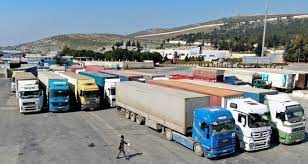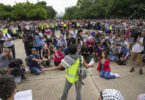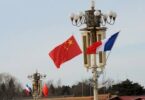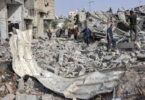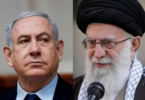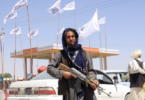Kerry Boyd Anderson
The UN Security Council last week failed to reach an agreement to keep open the Bab Al-Hawa border crossing that allows international aid to reach northwest Syria. In addition to dire humanitarian consequences, the development also has geopolitical implications.
For several years, the UNSC has provided six-month authorizations for UN agencies to transport aid from Turkiye into northwest Syria, a key area that remains under the control of Syrian opposition groups. Russia has long objected to the crossing but previously had been persuaded to allow it to remain open. However, the constant need to renew approval every six months undermined planning efforts, and the UN secretary-general requested a 12-month authorization. Russia refused to consider a year-long authorization, so the UNSC considered a compromise nine-month extension. Russia made the sole vote against the extension, with China abstaining, thus vetoing the proposal. Russia then offered a six-month extension, but France, the UK and the US opposed it and most other members abstained.
While Russia might have appeared willing to extend approval for six months, its opposition to a longer authorization comes after repeated Russian moves to cut other cross-border routes for aid into Syria. In 2014, the UNSC approved resolutions to authorize providing UN aid through crossings with neighboring states without requiring agreement from the Syrian government. It established four crossings: two through Turkiye, one through Iraq and one through Jordan. After Russia increased its direct support for the Syrian regime, it used its diplomatic leverage at the UN to gradually close all the crossings, now including the last one, Bab Al-Hawa. The humanitarian consequences are disastrous. While some non-UN aid might still make it to the Syrian northwest, the UN aid agencies play an essential role in providing aid and coordinating deliveries with other aid groups. More than 4 million people live in the northwest region and most of them are completely dependent on aid, including many women and children. A majority of the population has been repeatedly displaced. February’s earthquake further devastated the region and the Bab Al-Hawa crossing was crucial to recovery. After the earthquake, the Assad regime allowed the UN to open two additional crossings from Turkiye, but that agreement was temporary and most of the aid still flowed through Bab Al-Hawa.
Since last week’s UNSC vote, the Assad regime has offered to allow the UN access to the crossing for six months, but with new conditions, including full coordination with the regime. Russia insists that aid can still travel to those in need via the Syrian government. Unfortunately, the Syrian regime has a clear track record of spoiling, stealing, delaying or halting aid shipments to areas held by opposition forces. Russia’s decision to end UN authorization for the Bab Al-Hawa crossing represents both a years-long strategy to cut off aid to opposition areas and a more recent shift in Russia’s geopolitical position. Moscow has directly assisted the Assad regime in its efforts to restore control over Syria. One element of Russia’s support is its insistence that the UN recognize the regime as the sovereign government of Syria, including sending aid through the government rather than directly to areas held by opposition groups. Furthermore, siege-and-starve tactics have played a significant role in the Syrian civil war and Moscow is well aware that providing aid to populations residing in opposition-held areas limits the Syrian regime’s ability to effectively use these tactics. In such a brutal war, the denial of food, medicine, diapers and other essentials to desperate people becomes a weapon, and Russia seeks to ensure that the Assad regime can wield that weapon.
The war in Ukraine and the recent Wagner Group mutiny have shifted Russia’s global position in ways that might have reduced the international community’s ability to persuade it to support a UN-authorized border crossing. Since Russia’s 2022 invasion of Ukraine, the US and Europe have dramatically intensified pressure on Moscow, including through sanctions. An unintended consequence might be reduced leverage over Russia’s government. The war in Ukraine and other developments have also reshaped Russia-Turkiye relations. Turkiye has sought to balance its relations between the West and Russia, and Ankara and Moscow have worked together through the Astana process to manage their interests in Syria. However, in recent weeks, Turkiye has appeared to tilt toward the West, including allowing Sweden to join NATO, expressing support for Ukraine’s desire to join NATO, providing armed drones to Ukraine, and releasing five Ukrainian soldiers from a prisoner swap deal arranged by Ankara. Turkiye wants the Bab Al-Hawa crossing to remain open for several reasons; in particular, it wants to avoid a new humanitarian disaster that could push more refugees into Turkish-controlled areas in Syria or to the Turkish border. Russia’s move to close the crossing might partly be in retaliation for Turkiye’s recent actions.
The Wagner Group mutiny in Russia also has consequences in Syria, where the group has been very active. Globally, the mutiny also damaged President Vladimir Putin’s reputation. Taking an important step to support the Assad regime, a Russian ally, against international pressure might be a way for Putin to reassure partners in other countries that he has their backs. Meanwhile, the humanitarian consequences will be severe. Once again, Syrian civilians will bear the brunt of geopolitical maneuvering.

